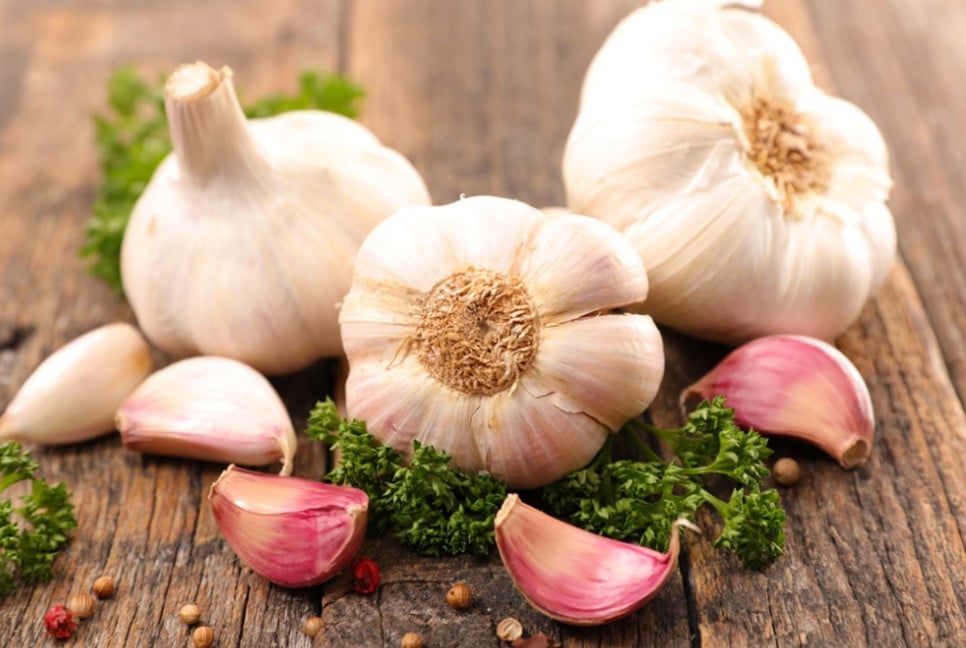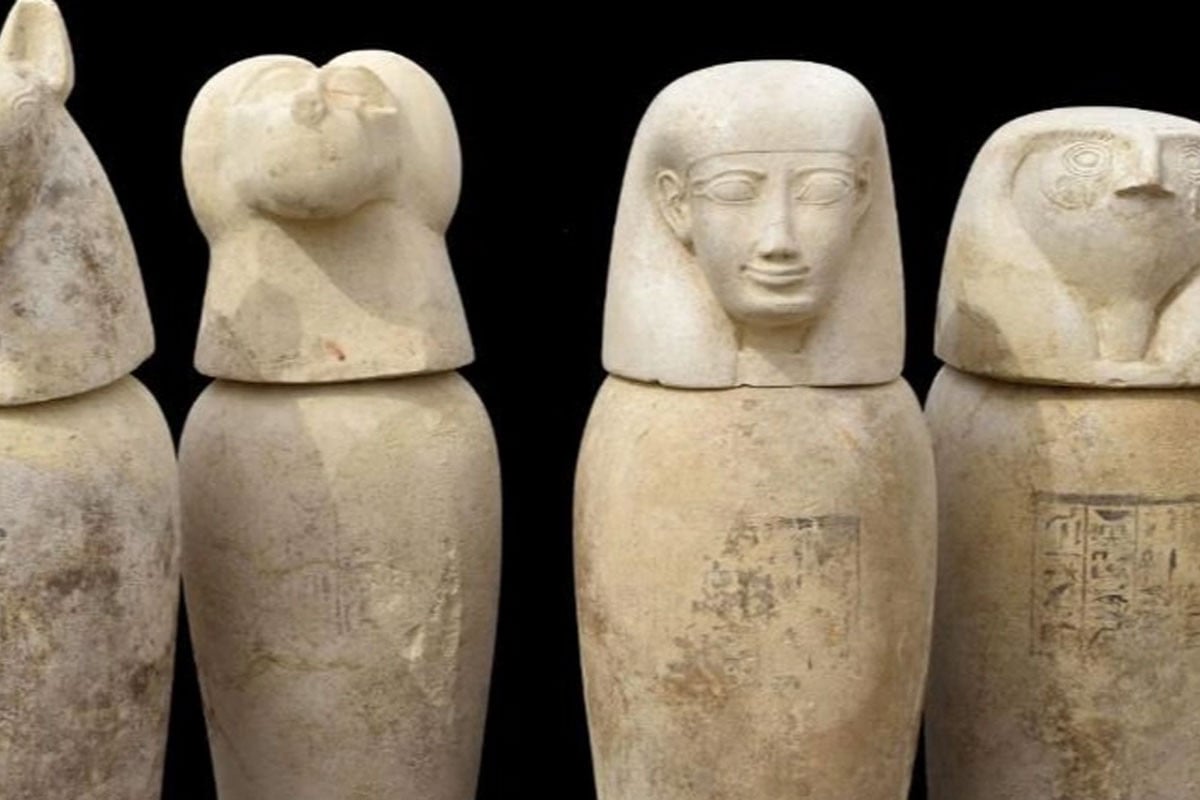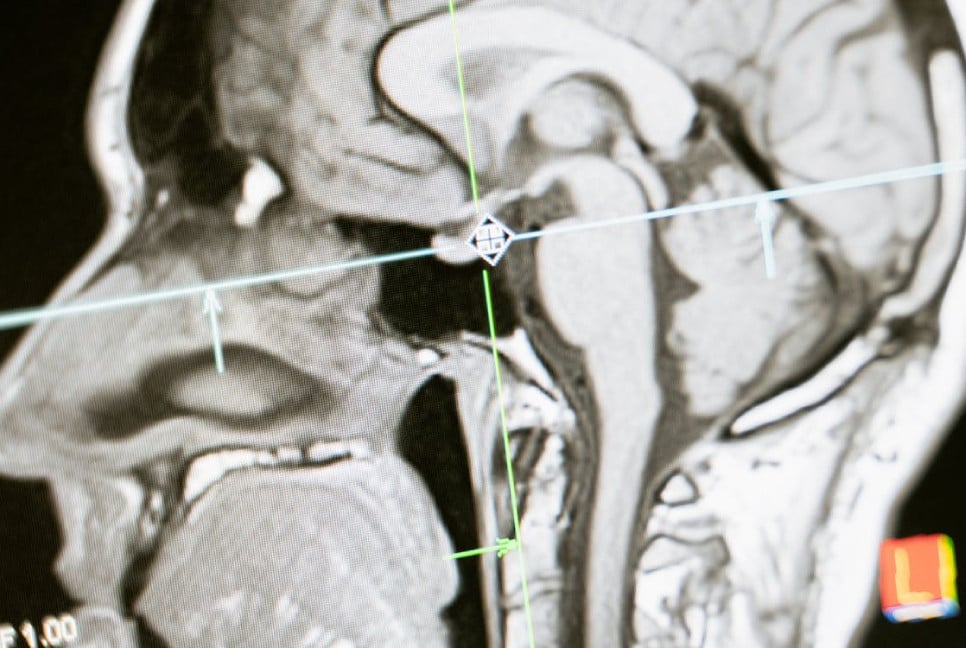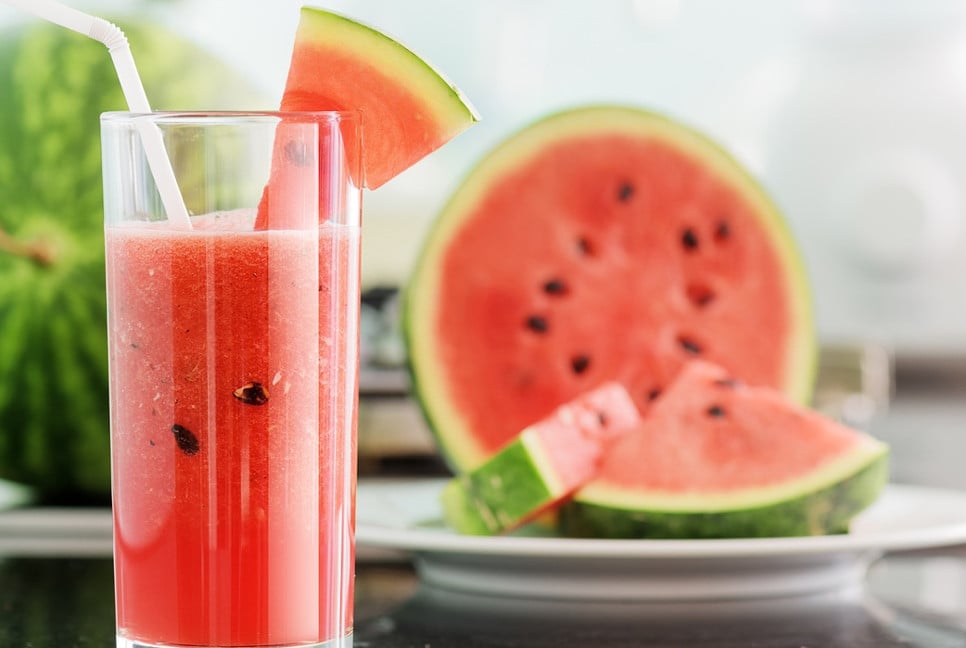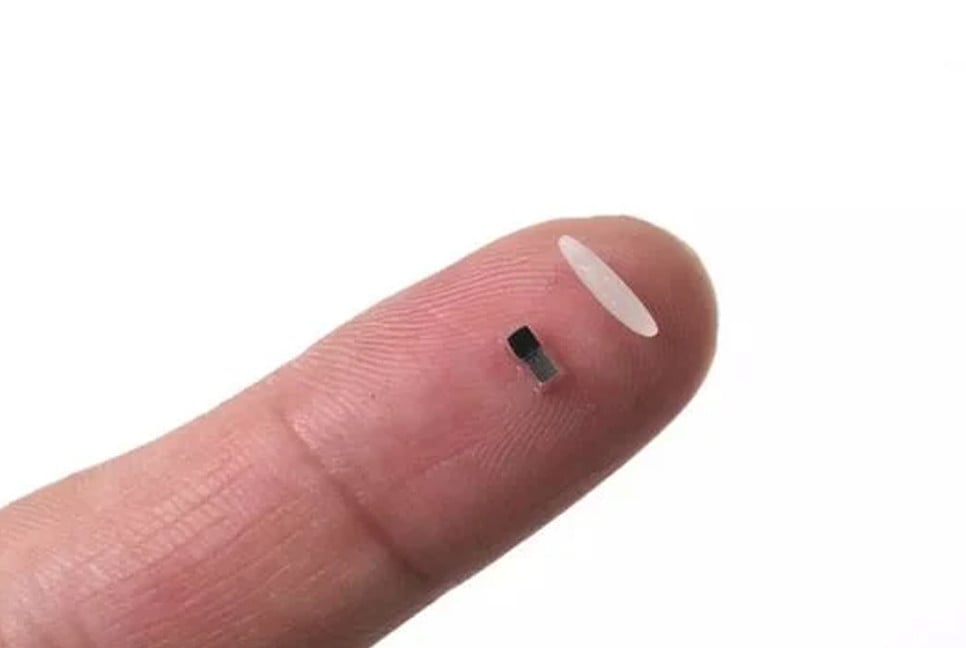Garlic, with its savory, bold, and uniquely delicious flavor has been a favorite for enhancing the taste of countless dishes. This small root vegetable is part of the onion family, Allium, and brings richness and complexity to an array of recipes. We usually cook with the small cloves found inside the plant's bulb.
The U.S. Department of Agriculture states that garlic is one of the oldest known crops, with evidence of its use in ancient Egyptian, Indian, Babylonian, and Chinese cultures, dating back over 4,000 years.
Garlic, originally native to Central Asia, is now grown worldwide. In 2015, global production reached 25 million tons, with China producing 80% of that total. Its strong flavor and versatility have made it a key ingredient in cuisines globally.
Health Benefits of Garlic
Beyond imparting mouthwatering zest to recipes of all kinds, garlic also offers some incredibly healthy benefits when eaten.
"Garlic contains powerful plant-based compounds (phytochemicals) that have been associated with numerous protective health benefits when included in a generally healthy diet," says Emmie Satrazemis, RD. "Because of these compounds, garlic has also been used as a form of natural medicine throughout history in various cultures."
Josh Schlottman, certified personal trainer and nutritionist, adds that garlic aids in fighting disease, combating inflammation, and even healing wounds. "It's been used in traditional medicine for centuries as an antibiotic, antifungal, and anti-inflammatory agent," he says.
We don't know about you, but we love when something so delicious is also good for you—it's something you want and absolutely should have. Here's what you need to know about garlic and all its amazing nutritional properties.
It's nutrient-dense.
Garlic offers bang for your buck in the nutrient department: It provides an impressive number and amount of nutrients relative to its low-calorie count, making it a nutrient-dense (read: very healthy!) ingredient. By consuming garlic, you'll treat your body to some key nutrients such as manganese, vitamin B6, zinc, sulfur, iron, vitamin C, potassium, calcium, magnesium, selenium, and more.
It helps reduce your risk for heart disease.
Substantial research has found that garlic plays a role in reducing the risk of cardiovascular diseases like heart attack and stroke, namely by lowering high blood pressure and regulating cholesterol levels (including lowering LDL, or "bad," cholesterol).345
The aromatic contains allicin, for example, a cardioprotective, sulfur-containing compound released when raw garlic is chewed, chopped, or crushed, and responsible for garlic's signature aroma and flavor.6 In addition to its numerous other medicinal properties, allicin's cholesterol- and blood pressure-reducing effects are beneficial to the cardiovascular system.
It packs an antioxidant punch.
While we're talking about disease prevention, garlic also helps fend off free radicals, reduce oxidative stress, and combat systemic inflammation.7 Garlic is high in antioxidants like polyphenols and flavonoids—in fact, garlic has been found to contain more than 20 polyphenolic compounds.8
Antioxidant-rich foods can help guard your cells against free-radical damage, which in turn can decrease your risk for diseases associated with chronic stress and inflammation: cancer, heart disease, diabetes, Alzheimer's, and more.
It has antifungal and antibacterial properties.
More recent scientific interest in garlic's antimicrobial powers has uncovered its potential to protect against viruses, bacteria, and fungi, thanks in large part to allicin.9 Researchers have hypothesized that certain compounds from garlic work to keep harmful external microorganisms from invading healthy cells as well as hinder their ability to grow.
It gives your immune system a boost.
In addition to making it harder for pathogens to take hold, garlic may also help fortify your immune system to fight them off by boosting the white blood cell response. The sulfur content of garlic, in particular, is known to enhance our immune response.
One scientific review studying the effects of aged garlic extract on the immune system saw increased immune cell activity in participants who consumed a certain dose of aged garlic extract for 90 days compared to a placebo group.10 It concluded that aged garlic extract may "enhance immune cell function and be partly responsible for the reduced severity of colds and flu reported."
It has promising anticancer properties.
Though more research is ongoing to fully understand the specific anticancer activity of garlic, many studies suggest that consuming garlic may help safeguard against cancer and that several of its bioactive molecules kill or inhibit the growth of cancerous cells.1112 A 2018 study published in the journal Nutrients observed that "homemade garlic extract has anti-cancer activities both in vitro and in vivo."13
It could strengthen your bones.
Osteoporosis—also known as brittle bone disease—is caused by a surplus of oxidative stress. In fact, a 2020 study found that consuming garlic regularly reduced levels of oxidative stress, along with boosted immune function and reduced cholesterol. Consuming high oxidant spices (like garlic) is an excellent way to improve bone health and prevent future orthopedic issues.
It might even help you live longer.
Many of us dream about living to 100, but how do we get there? One way to potentially do so is by eating more garlic. A 2019 study found relevant links between garlic consumption and mortality; people who frequently consumed garlic (at a baseline) lived longer lives than those who rarely consumed the spice. While additional lifestyle habits still play a role in longevity, there's virtually no harm in adding more garlic to your diet.
How Often to Eat Garlic
Schlottman notes that you'll reap more of its benefits if you eat garlic daily. "The daily recommended amount is one to two cloves per day," he says. "Easily add it to your favorite foods like pasta, sautéed vegetables, and garlic bread."
There really aren't any significant reasons to avoid eating garlic, unless you're allergic or simply hate the stuff. Since this pungent ingredient isn't for everyone, Satrazemis acknowledges the perks of eating garlic, but notes that it's "not necessary to consume it if you don't like it."
"While the potential health benefits of garlic sound promising, they don't outweigh the need for a balanced healthy diet and overall healthy lifestyle—in other words, no single food will make or break your health, not even garlic," she says.
Source: real simple
Bd-pratidin English/ Afia

